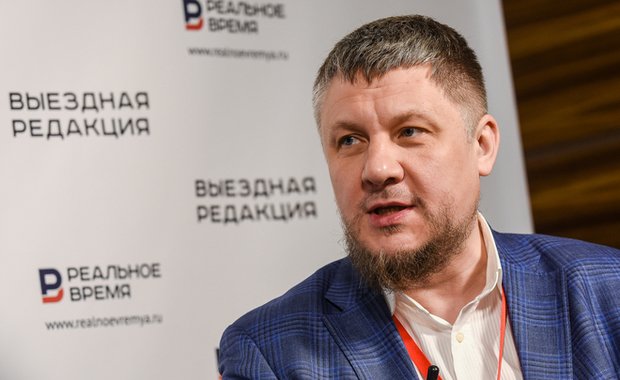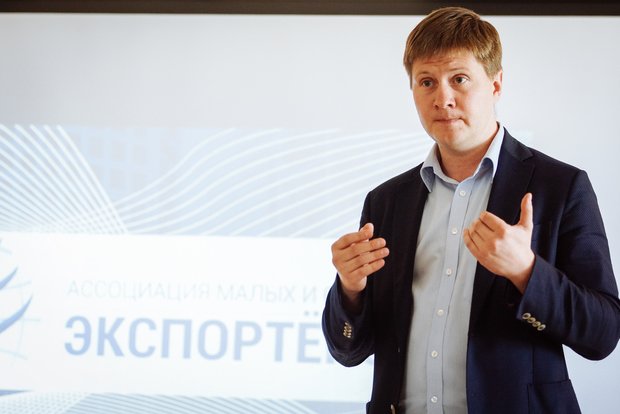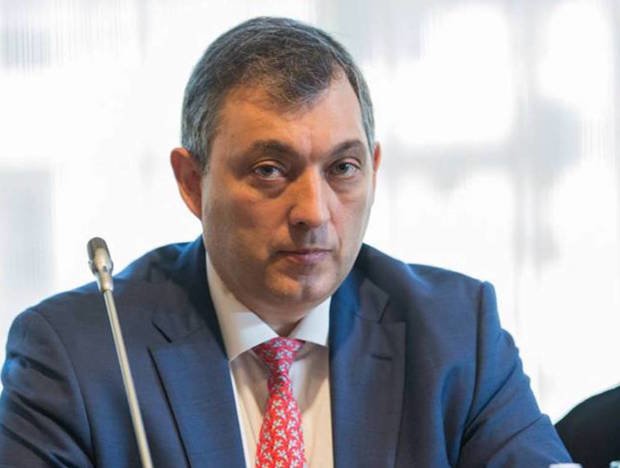''Russia was guilty of the war in Chechnya 20 years ago. Now the attitude is completely different''
How Tatarstan was urged to economic rapprochement with the Muslim world
Prospects of strengthening commercial cooperation of Russia and Tatarstan with Muslim countries was discussed at KazanSummit on 11 May. Last year, the republic exported its commodities for $1,1 billion to OIC countries. But according to the forum's participants, this indicator must be higher. Realnoe Vremya's correspondent observed how business was advised to get rid of unnecessary romanticism and ideas of economic rapprochement with the East were presented through as opposition to the West.
''America and others of that ilk''
Many sessions were dedicated to commercial links of Russia with the Muslim world at KazanSummit 2018. At the session on 11 May, it was told about the promotion of Russian commodities to countries of the Organisation of Islamic Cooperation (OIC unites 57 countries, Russia is an observer).
President of the Association of Muslim Entrepreneurs Aydar Shagimardanov moderated the session. He sees a way of protection from ''commercial wars'' in the development of links with the OIC, which ''America and others of that ilk'' trigger.
''We all perfectly know the world is going through not the easiest time. Now a serious division into countries who support the United States of America and the countries that are on the other side is taking place in the world,'' Shagimardanov claimed. ''Commercial wars also affect Russia. And if it continues this way, it can harm Russian exports,'' he added.
Head of the Chamber of Industry and Trade of Tatarstan Shamil Ageyev said they needed to increase the supply of Russian products to Muslim countries many times. Non-government organisations can help business here; particularly his chamber has consulted 125 companies this year. ''What we have now [export] is chaotic,'' Ageyev added.
According to him, the growth of the volume of trade with the OIC can be also useful from a perspective of Vladimir Putin's new ''May Decree''. One of the instructions of the president was about international cooperation: it was given a task to increase the share of non-commodity exports to 20% of GDP (as well as non-commodity and non-energy products to $250bn a year in 2018-2024).

Attention: Uzbekistan
Executive Director of the Association of Small and Medium Exporters Yury Shurygin read data about the dynamics and commodity structure of trade of Tatarstan with OIC members. Last year, the volume of Tatarstan export to countries of the Organisation of Islamic Cooperation returned to the 2015 level and amounted to $1,1 billion (the total volume is $13,1 billion). In 2016, exports fell by $0,2bn, which seems to be linked with a reduction of oil prices – annual average Urals decreased to 18,2% then.
Kazakhstan (Tatarstan supplied products for $605m), Turkey ($144m), Uzbekistan ($84m), Kyrgyzstan ($47m) and Saudi Arabia ($36m) became the biggest partners of the republic among the OIC members in 2017.
Oil and oil products accounted for more than 20% in the Tatarstan export. The OIC countries also purchased synthetic rubber ($85m), ethylene polymers ($80m), tyres ($67m), ''secret products'' (it's weapons, $58m), sunflower oil ($55m).
Shurygin praised Tatarstan for a smart economic policy or, more precisely, a commercial surplus (the volume of imports from the OIC was $0,4bn in 2017). He also advised the republic and Russia, in general, to pay attention to Uzbekistan as a big with huge potential. He says this country is very interested in Russian commodities. In addition, colossal changes have happened there in the last years. Russian suppliers waited for execution of payments in the currency from weeks to a year because of a strict monetary policy. However, now everything is different.
In 2016, after the death of first President of Uzbekistan Islam Karimov, liberal reforms began in the country: the strict monetary regulation was cancelled under new President Shavkat Mirziyoyev, and the Uzbek sum switched to a free rate.
Shurygin thinks Uzbekistan's independence from PRC is another advantage of Uzbekistan as export market. According to him, unlike many countries of Central Asia, Uzbekistan has a very reluctant attitude to Chinese export.

''Not because Muslim brothers are with us''
Like Ageyev, Mikhail Orlov, chairman of the Russian-Egypt Business Council, also complained about weak commercial links – this time with Egypt: ''Don't understand my words as [words of] a person who wants to be negative, I try to provide constructive analysis, constructive criticism. I think the trade level between Russia and Egypt is microscopic. By our estimates, this level could be 4-5 times higher.''
Orlov thinks the current mutual trade of Russia with Egypt isn't completely the merit of the Islamic factor. It's rather a residual effect from the era of the Soviet Union that has nothing to do with Islam.
He said there is lack of not a cultural and religious component but market relations to strengthen the links: ''Now the attitude of the Muslim world towards us has cardinally changed. Everybody looked at the war in Chechnya 20 years ago, and Russia was guilty. Now the attitude is completely different, but these market mechanisms are really needed.'' This is why Orlov claimed we needed to develop relations not romantically (not because Muslim brothers are with us) but technically.''
Artur Haidari, president of Unity Integration, also urged Russia to cooperate. Haidari has been living in Afghanistan since 2013, his company collaborates with foreign investors.
Standing behind the rostrum Haidari made everybody who was in the hall sympathise telling about living conditions and running a business in Afghanistan. He said he could enumerate their problems for hours, of course. The majority of the country has been in devastation for many years; even the capital of Afghanistan, Kabul, there is no sewerage in some places; many districts are in isolation, there aren't any schools there, and the youth listen to mainly on what old people say to them.

The country has big natural reserves: lithium, copper, gas and oil. Authorities of Afghanistan prohibited the sale of feedstock several years ago, so that local companies would deal with at least primary processing. However, produced oil is still sold and goes to the territory of Pakistan as contraband. Trade roads are often controlled by terrorists.
The financial help, which comes from international institutes (through the World Bank or the Asian Development Bank), goes through Afghan non-commercial organisations and settles there due to a high level of corruption, Haidari enumerated.
Nevertheless, he hopes for changes. According to him, now Russia is considered as a partner in Afghanistan. Construction, power engineering, food are possible cooperation areas.